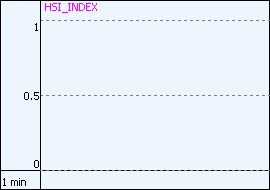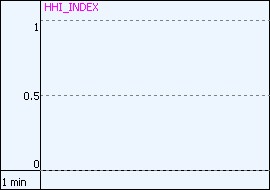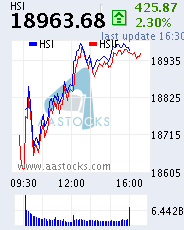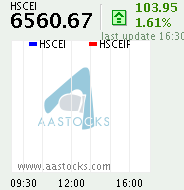展望未來,累積財富~
每次投資經驗均是累積智慧的良機,2012年即將完結, 在這個年終的時刻回顧、細心檢討,不斷累積財富,與展博研究邁向更康莊投資大道。
2012年12月31日
2012年12月27日
新浪財經訊
今日兩市呈現沖高回落態勢。早盤雖有受益國家降低流通費用的物流板塊和受益中國重大型號無人攻擊機樣機即將首飛的航太航空板塊領漲,但之前助推指數上攻的銀行、券商、地產以及水泥板塊今日盡皆弱勢,導致指數沒有權重股的護盤情況下下探震盪。午後雖有鋼鐵、釀酒等板塊拉起促滬指一度翻紅,但尾盤地產股領跌兩市小幅跳水,滬指退守2200點,年內陰陽存疑。
截止收盤,滬指報2205.90點,下跌13.23點,跌幅為0.60%,成交1004億元;深成指報8939.85點,下跌0.83點,跌幅為0.01%,成交987.9億元。
信達證券認為,隨著指數上漲,減持行為大幅上升,上行阻力加大,指數在年線位置將出現震盪,但考慮節日即將來臨,短期市場情緒仍在高位,在年線附近,將出現實業資本與散戶的籌碼換手行為,投資者仍可保持相對積極的態度,盡可能持有漲幅不大的個股,對暴漲個股適當減持。
但銀河證券認為,本輪中級牛市行情已經確認,估計明年上半年大盤會處於上漲狀態,上漲幅度暫時看到20%~30%。但有兩個方面需要投資者保持警惕和理性:第一、中級牛市行情雖然確認,但長期牛市行情目前並未確認,還要觀察股市的進一步演變;第二、股市今年的12月在投資者心態普遍看空狀態中進入牛市,但其後一旦投資者心態由熊轉牛並開始逐步入市時,則可能在下一階段時間的交易中,大盤出現震盪波動,再次考驗市場做多信心。
後市展望
從板塊表現分析,新浪名博占豪認為,金融指數和地產指數沖高回落,資源股也處於震盪格局,這些大板塊向上動能也在階段性枯竭,距離調整應也不遠,它們整體的節奏與大盤基本一致,現在的唯一的疑問還是資源股是否還要頂上一頂。今天最大的熱點是ST股,ST股的炒作主要還是所謂摘帽預期,但是事實上能夠摘帽的企業還是少數,投資者要注意風險。
對年K線懸念,新浪名博圖銳認為,最後兩個交易日主板難有大漲大跌,上證指數圍繞年線反復震盪整理的可能性較大,既複製了之前的橫盤節奏,也把“年線懸念”留到了最後一刻。筆者認為這個懸念下週一最後時刻才見分曉的可能性極大,而能否達成收陽夙願?仍然得看量能水準和權重走勢這兩大因素。
對於尾盤跳水,新浪名博巫山喜雨認為,通過市場尾盤的表現可以看出來隨著指數的調整,資金也在改變他們的操作策略,尤其今日創業板而出現一定調整,主要便是短線漲幅過大,短時間內多數都有了30%的漲幅,從未來年報以及高送轉的預期看,這一板塊還有機會。同時午後包括鋼鐵、釀酒以及傳媒股的表現都在傳遞一個信號,那就是補漲行情依舊沒有結束,尤其是對於低價題材來講更是如此。
2012年11月22日
A股估值 已見吸引
A股出現令人振奮走勢,上證綜合指數一度失守2000點,最後大幅反彈收市,筆者認為沒有新的利淡因素下,A股是愈跌愈抵買,預測PE不足10倍,可憧憬A股及H股十年前升市歷史重演,要留意保險股和A股ETF。
上證綜合指數昨日中段跌穿2000點,低見1995點及創四十五個月低位,午後拗腰反彈及倒升1.1%,收2030點,三日內兩度守1995點。而國企指數走勢亦被A股牽着走,最後升170點或1.7%,收10397點,成交額107億元;紅籌指數升21點或0.6%,收4213點,成交額78億元。
近期見到不少評論睇淡大市和A股,尤其A股過去十年走勢急升急跌,十年後差不多打回原形,又如內地媒體引述國際投資者兼量子基金創始人羅杰斯近日表示,希望在股票方面能夠更多關注中國,未來通過購買中國的股票可以為自己帶來收益,但現在不會買中國A股,只有當中國股票持續下跌、崩盤的時候,才會下手去買,然後留給孩子。
上證預測PE8.5倍
專家們都好似在睇淡A股目前市況,實際上筆者在中共十八大前指出,十年前「胡溫」組合上場後,上證表現是反覆向上,十六大後的上證由1500點跌至年底至翌年1月的1300點,下跌超過一成。然後炒作全國人大會議確認新領導人,上證由1300點升至1650點水平,升幅達27%,但4月過後又急跌,跌到年底打回原形,惟隨後由1300點升至2004年4月高位1783點,升幅達37%,所以筆者並不看淡A股。
至於國指當時表現更強於A股,國指十六大後在1800點橫行一個月才開始逐步攀升,一直升至2004年1月高位5440點,升幅達2倍。而上證和國指目前市況表現跟當年有點相似,也是筆者憧憬十年前歷史重演的原因之一。
此外,國指由9000點升至現水平,今年預測PE只有8.6倍,明年預測PE降至7.8倍,上證明年預測PE會降至8.5倍,滬深300指數明年預測PE約8.9倍,數字反映A股以及國指有一定吸引力。
若然上證在年底前再跌超過一成,即跌至1800點,筆者並不會感到奇怪,反而會是追捧A股相關股份或ETF的機會,除非內地經濟崩潰,但領導人明確預期內地經濟未來是增長,2020年GDP目標較2010年翻一番,即達80萬億元人民幣,以及將人均可支配收入同樣翻一番,故A股會否出現羅杰斯所希望的崩盤而執平貨,筆者存疑。
A股若復甦選內險
若然A股復甦,A股的ETF和保險股都會受惠,尤其保險股的投資回報主要來自股票市場,故中國人壽(02628)、中國平保(02318)、中國太保(02601)、新華保險(01336)、中國財險(02328)等股份始終值得留意。
標籤: 中字股實力談--余少文
2012年11月15日
2012年11月8日
“THINK. THEN DO.”
2012年9月28日
120928信報社評: QE3控制預期 信者自會得救
2012年9月28日
社評
QE3控制預期 信者自會得救
港股昨天期指期權結算,早段追隨外圍上日跌勢低開,恒指最低見二○四八七點,與上日低位二○四八五點形成雙底後即反覆回穩,下午受內地股市大幅造好飆升,恒指最高見二○八五○點,升幅逾三百點,最後報收二○七六二點,上升二百三十四點,回升至二○六○○點水平和十天平均線之上。
自歐洲央行宣布無限買債和聯儲局推出無限期和無限量購買MBS的QE3後,港股即追隨外圍歐美股市裂口上升,但升近二○九○○點水平已見乏力,成交動力減弱,說明QE3並未如過去兩次量寬措施一樣發揮巨大威力,刺激資產價格上升。「回春藥」式的亢奮過後,金融市場只能維持膠着狀態,不升不跌、不生不死、沒完沒了。
歷史不會簡單重複,QE1、QE2和QE3推出後期望和實際發揮的效應,也不盡相同。QE1推出的目的旨在挽救雷曼倒閉後瀕臨崩潰的歐美金融系統,因為金融衍生工具締造的金融資產泡沫爆破釀成的信心危機,禍連實體經濟,不得不大量輸入流動性,穩定金融系統。
金融海嘯後,實體經濟元氣大傷,樓市崩潰,投資萎縮,百業蕭條。QE2的推出,旨在製造和長期維持低息環境,企圖驅使銀行增加商業信貸,刺激經濟復蘇,結果卻形成通脹預期,引發資金追逐資產價格,但因此而形成的財富效應,只有利金融資本和持有資產最富有的階層,對社會整體消費和實體經濟刺激有限,所以美國經濟增長緩慢,實質失業率仍然高企不下。
貝南奇在萬眾期待下再度推出QE3,還要是無限期和無限量的QE3,明顯是要破釜沉舟,不成功便成仁,因此理論上根本不存在QE4的可能性。如果QE3只是舊瓶新酒,純屬QE2的翻版,在市場預期之內,肯定不會有顯著效用。倘若大家以為QE3等於無限印鈔,勢必導致超級通脹,也捉錯用神,因為倘如是,資產價格和資源價格定必一如以往,大幅飆升,然而目下的實情卻非如此。
熟悉貨幣主義理論和對三十年代大蕭條有詳盡研究的貝南奇不是省油的燈,其實亦深知量寬措施只能解決短暫性的融資問題,卻不能改變長遠經濟和生產力的回報,最終亦不可能改變資產價格。如果短期利息達致零息階段,銀行存款在央行的機會成本亦等於零,除非市場出現需求或投資環境改善,否則只會形成流動性陷阱,也不肯輕率放貸,結果M1規模擴大不等於自動增加M2規模,實際經濟依然受惠有限。
要實體經濟受惠,必須配合政府增加開支的財政政策,才可實際增加就業。但面對「財政懸崖」的困境,美國一定要在政治上有所突破,才可以凱恩斯主義的財政政策,配合貨幣量寬措施,刺激經濟,創造就業。
QE3真正的目的,其實旨在控制預期,以通脹創造名義GDP增長,只要市場愈早相信QE3有效,QE3便可真正發揮效用。
但弔詭的是,倘若人人相信QE3,量寬措施真正發揮效用,財富效應刺激消費增加,帶動企業投資,改善實體經濟,通脹真的重臨,低息環境亦會提早終結,到頭來進取的投資者便會受到損害。
正是這種兩難局面,解釋了股市和投資市場何以踟躕不前,升不了也跌不下,因為大升只有利人家高位沽貨套現,造淡又會遭受無限量寬挾倉。面對前所未見的奇局,投資者若要「焗賭」,只能炒股不炒市,並且應該速戰速決,有利獲利。
2012年7月17日
展博天下 之 話工作~
記得《22世紀殺人網絡》裏面,反對派領袖莫非是(Morpheus)向男主角李奧(Neo)講過一番說話,大意是Matrix是一個系統,這個系統是我們的敵人,但當你置身其中,並環顧四周,你會看見什麼?
商人、教師、律師、木匠......我們竭力拯救他們逃出思想牢獄,但在我們成功做到之前,這些人仍是這個系統的一部分,而這會令到他們成為我們的敵人。
你必須明白,他們大部分都未準備好「拔插蘇」(unplugged),未準備好脫離這個系統,其中不少更由於惰性,以至絕望地倚賴這個系統,而不惜為了保衛它而戰鬥!
《一份不能失去的工作》,就是這個系統,或者至少是這個系統的重要組成部分吧?
2012年7月6日
展博天下 之 展博玄學立場
展博天下 之 展博金句
2012年6月30日
Can Hong Kong trust this man ?
2012年6月23日
展博天下 之 展博講波
一陣間有"歐債打比" 歐洲國家盃8強 德國 vs 希臘 23/6 2:45
2012年6月13日
展博天下 之 大市看法
標籤: 3A Research
2012年5月28日
展博天下 之 大市看法
標籤: 3A Research
2012年5月17日
點歌仔: 三國主題曲
Super 4 不枉
作曲:鄧智偉
填詞:張美賢
編曲:Johnny Yim
監製: 鄧智偉
水滔滔 天蒼蒼
一借東風頃到燒光
樹靜雲淡也是虛罔
撓起弓箭為著射穿怯慌
對酒當歌醉飲星光
相看一刻哪需多講
讓情義竭盡釋放 在那盡頭地方
活著是 生不辜負厚望
又或是 死得轟烈跌盪
用沉著對付兇悍
用血肉成就絕地的曙光
患難是 一起經歷碰撞
在烽火中受仰望
淚流 被遍地花葬 身再傷
不枉
水影酒色花香
雙鬢依稀蓋掩風霜
動盪時候會迷方向
以心攻佔不需劍起弩張
對酒當歌打開天窗
心照不宣各種悲傷
就贏盡漂亮一仗 萬世盛傳迴響
活著是 生不辜負厚望
又或是 死得轟烈跌盪
用沉著對付兇悍
用血肉成就絕地的曙光
患難是 一起經歷碰撞
在烽火中受仰望
淚流 被遍地花葬 身再傷
不枉
活著是 生不辜負厚望
又或是 死得轟烈跌盪
用沉著對付兇悍
用血肉成就絕地的曙光
患難是 一起經歷碰撞
在烽火中受仰望
淚流 被遍地花葬 身再傷
不枉
2012年5月15日
好書介紹:"The Start-up of You" by Reid Hoffman (co-founder of LinkedIn) and Ben Casnocha
For example, entrepreneurs can both be persistent on a plan and flexible when conditions change. They take intelligent risk. They build networks of allies and tap those networks for intelligence on what's happening in the world. Silicon Valley's most innovative entrepreneurs possess unique skills--you can learn them and apply them, no matter your profession.
Being an entrepreneur isn’t really about starting a business. It’s a way of looking at the world: seeing opportunity where others see obstacles, taking risks when others take refuge. Whatever career you’re in or want to be in The Start-Up of You holds lessons for success.
後記: 這本書竟和本研究部的工作觀不謀宜合,每個人都須要成為自己的企業家,經營個人能力和事業,即使現在沒在開公司;也應該讓企業這個賺錢的系統,成為自己生活的一部分。 企業家精神不但求存---更要不斷進步;不斷適應挑戰,不斷尋找機會,要完全了解自己的「個人品牌」....同時要學懂善於與人合作,著眼建立“網絡”(Networking) 而非“關係”(Guanxi),值得香港的打工仔思考,改變處世之道和心態~
註:本推介並不代表本研究部立場~
標籤: 3A 散文, 3A Research
2012年4月25日
要有面對戰爭既心理準備
今世既所謂乜鳩經濟增長,實乃借住透支黎假繁榮,乜撚野都係借貸谷靚條數,大至一國gdp,小至平民買樓,一撚樣...
任何透支行為,都只係將未來既勞動力提早折現,折完現,洗撚埋,遲早都係要還...
二次大戰後全世界百廢待興,要死既都死晒,繼之而來既係一批新力軍,結果當然係經濟十分好景,一片欣欣向榮.但百廢待興都有興完一日,被戰爭摧毀既野要補已補晒,由西方先進國家到東方落後國家,物質一波一波補充,補完仲要經濟增長,點搞?就玩透支,玩浪費?
以前一部電視雪櫃閒閒地玩三幾十年,而家三幾年,難道今時今日既科技不如前?顯然唔係,而係因為以前做得太好,要買電視既都買晒,咁d廠點增長?出新機,
新科技,你就想買,丟左舊果部.然後新機特鳩登set好三幾年自動燒撚左,可能燒既只係一粒野,成部野原料都新新淨淨,但你侷住又要買,生意長做長有,透
過無盡既浪費去維持經濟增長!
然後新機又呢又路,多多野玩,價錢就賣你貴d,你見貴唔想買,就同你分期付款,即係將你之後既勞動力折現,變相同佢打埋工,又維持埋經濟增長?
但下下將將來既錢折現納入今日條數,到將來又點?現實話比我地聽,天下冇野係永遠向上,亦冇野永遠向下,透支同浪費都玩撚完時,仲有咩招維持經濟增長?冇!
<結果就只有戰爭一途>
古往今來,世界歷史都作如是觀.搞撚到最後唔掂檔,就會想拖,拖長佢慢慢諗計,但諗條春咩,到最後真係唔掂檔,就唯有用戰爭黎解決.戰爭可以掠奪他國,用
他國既物資黎平衡自己就黎玩撚完既經濟;戰爭可以死人,死一大堆人就再次進入百廢待興期,失業率冇晒;戰爭可以轉移視線,本來平民因為經濟衰退食都冇得食
就黎反檯,戰爭令到所有人突然收爹,變成只關心國家打贏定打輸!
有睇開呀叔以前寫既野都知我認為呢幾年戰事係不可避免,中東戰線伊朗再難打最終必打,此乃美國行左廿鳩幾年既棋,絕冇可能臨門一腳釋迦牟尼再世慈悲為懷放
你一馬;亞洲戰線美國圍堵中國越箍越緊,早兩日再放菲律賓同越南出黎咬,如無意外跟住果招就係叫埋印度由西南咬;歐洲戰線已比睪盛為首既冷坦iban十鳩
前前埋落炸彈等爆,隨時咸家富貴.表面睇,美國好似玩撚晒!
早前《留意呢兩個月共產黨有冇大鑊野》提過解放軍出聲明唔尋常,文中已講明共產黨認為黎緊係"人心不穩"時期,以胡錦濤當年鎮壓西藏既個性以及鄧小平六四後要隔代欽點佢,都說明出世局現大變動時胡將會行高壓政策穩住陣勢,香港急屎咁趕住立網上23條就係一個側面反映!
共產黨近30年奉行鄧小平韜光養晦政策,明知唔夠美國揪凡事忍讓等機會.但近日包括南海同東海方面都突然有略強硬表態,尋日4月22中國同俄羅斯聯合軍
演,而且規模有史以來最大,今日4月23則北韓突然吠兩聲話要搞撚掂南韓,各種跡象顯示胡錦濤搞撚掂上海幫後,開始係各方面有企硬之勢,有蓄勢待發之態!
北韓條肥懵鳩隨時連自己國家有幾多部門都未搞清,各部門呀頭邊個搭邊個都唔叉知,突然扮乜撚野勁?以當今局勢推算,極有可能係已同共產黨有檯底協議,甚至
連俄羅斯都有份.美國搵菲律賓同越南吠中國,中國就搵北韓咬美國.世界大棋局,就係2012展開,股市樓市仆柒街指日可待!
2012年4月12日
展博天下 之“盛女” 背後
2012年2月17日
展博天下 之 港股短評
標籤: 3A Research
2012年2月10日
展博天下 之 2012 政經分析
標籤: 3A Research
2012年2月8日
展博天下 之 點歌時間
2012年1月19日
2012年1月16日
2012年1月6日
希臘債務問題(最新情況)
標籤: 3A Research















